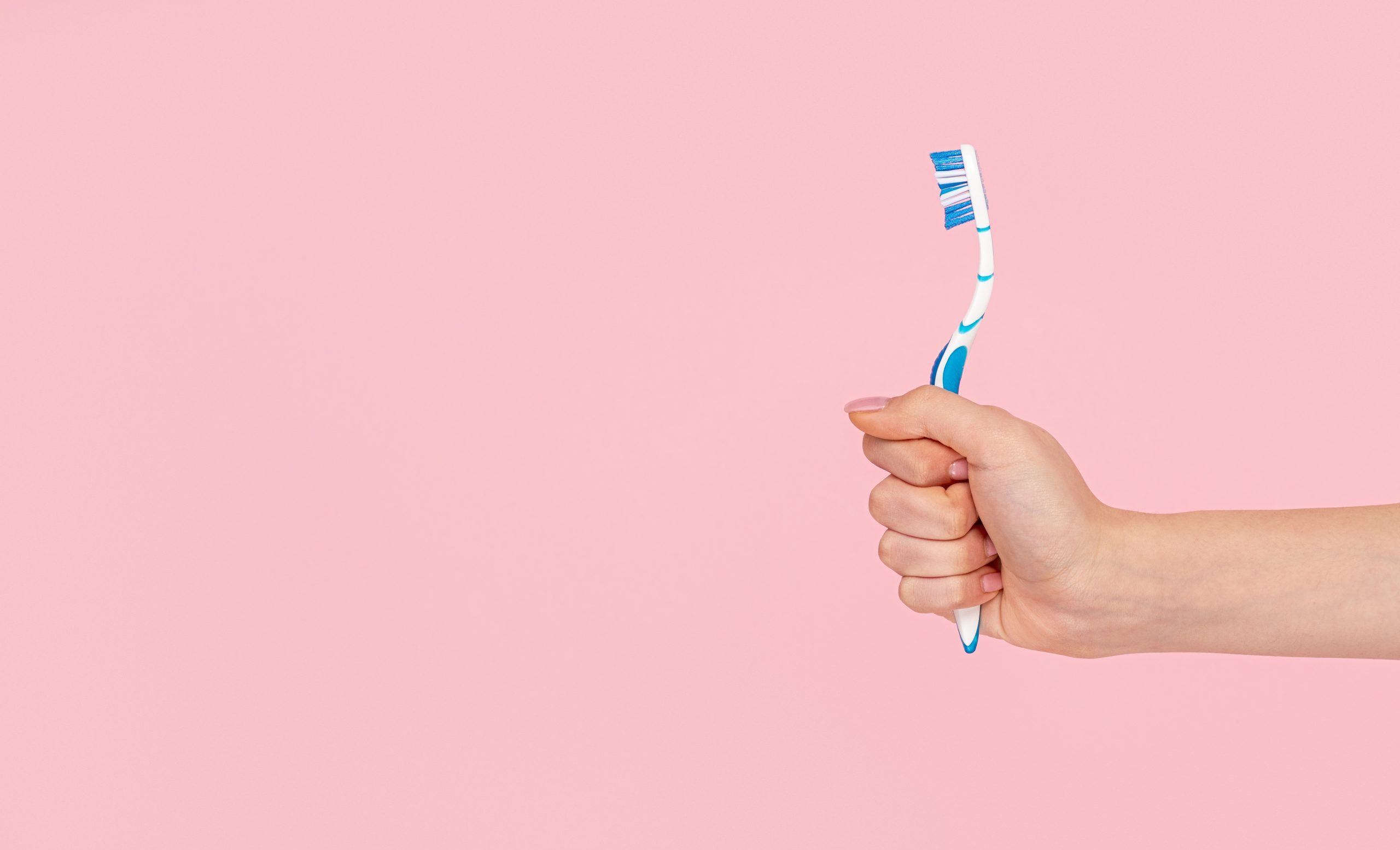When it comes to caring for your teeth, choosing the right toothbrush is essential for maintaining good oral hygiene. Brushing your teeth twice a day, using a mouthwash and flossing are the most important elements of oral care. But with so many toothbrushes on the market, how do we know which one we should be using? Is a soft or a hard toothbrush best?
Hard Vs Soft Toothbrush
Toothbrushes can be a personal preference, which is why they’re available in a variety of shapes, sizes and bristle types. While we don’t have the answer to which colour you should choose, we strongly recommend paying attention to bristle type. The toothbrush bristles are what keeps your teeth clean and bacteria-free, so choosing between soft and hard toothbrushes is actually more important than you might have first thought.
Hard Toothbrushes
One of the biggest benefits to using a toothbrush with hard bristles is that they often last longer than soft bristles. Like many people, you may think medium or hard bristles clean teeth more thoroughly, however, evidence suggests that very few of us should actually be using hard toothbrushes. Firm or hard bristles can actually wear away at your tooth enamel (the teeth’s protective layer), which is something that cannot be replaced. Damaged tooth enamel can result in more bacteria sticking to your teeth which can result in decay. Hard toothbrushes can also damage your gums, causing the gum line to recede, resulting in your teeth becoming more vulnerable to decay.
Soft Toothbrushes
Soft toothbrushes are actually more effective at removing food and plaque build-up than hard-bristle toothbrushes, and they are gentler on your teeth and gums. Soft-bristled brushes are best for removing plaque and debris from your teeth and along the gum line as they aren’t abrasive enough to cause erosion to the enamel. While a toothbrush with soft bristles cannot cause actual damage to your teeth or gums, you must use a good brushing technique to ensure plaque and debris are removed from your teeth.
How Often Should I Replace My Toothbrush?
Many people don’t replace their toothbrush often enough. A good rule of thumb is to replace your toothbrush every time it begins to show wear and tear, or every two to three months. It’s also important to replace your toothbrush if you have been ill, as the bristles can harbour bacteria and germs, leading to reinfection.
Choosing The Right Toothbrush For You
There are a lot of choices out there when it comes to purchasing a toothbrush, so it can be difficult to know what to look for. OralB has put together a list of some general tips on what to look for:
- Small brush head and well-designed bristles: Choose a toothbrush with a small brush head and a bristle design that helps you to get to the hard-to-reach places of your mouth.
- Soft bristles: Your toothbrush should have soft bristles that are gentle on your teeth and gums. If you have recessions, you may want to consider an extra-soft bristled toothbrush.
- Multi-angled bristles: Multi-angled bristles are designed to increase contact with tooth surfaces between teeth, removing plaque even from tough spots. That’s why angled bristles are superior to straight ones.
- Comfortable handle: Many toothbrushes have non-slip grips which make them easy to use even if wet. Additionally, the handles on many Oral-B toothbrushes have been modelled based on research into the five different ways that people hold their toothbrush while brushing.
What Kind of Toothbrush Should You Use With Braces?
Once your teeth are straightened by braces, it’s much easier to reach plaque on and between your teeth. But while wearing braces, plaque and food particles have more places to accumulate and become trapped. So be prepared to spend twice as much time on your oral care while you have braces to prevent the risk of developing gum disease or tooth decay. Alternatively, consider an electric toothbrush. These can be more effective at removing plaque than regular brushes and most have a timer to ensure you brush for the right amount of time.
The bottom line is that if you choose a toothbrush that is the right size and style of bristles for your oral care needs, you’ll be able to effectively clean your teeth and help prevent bacterial build-up and the development of plaque.
Still unsure about what toothbrush to buy? Speak to your orthodontist or dentist today!





